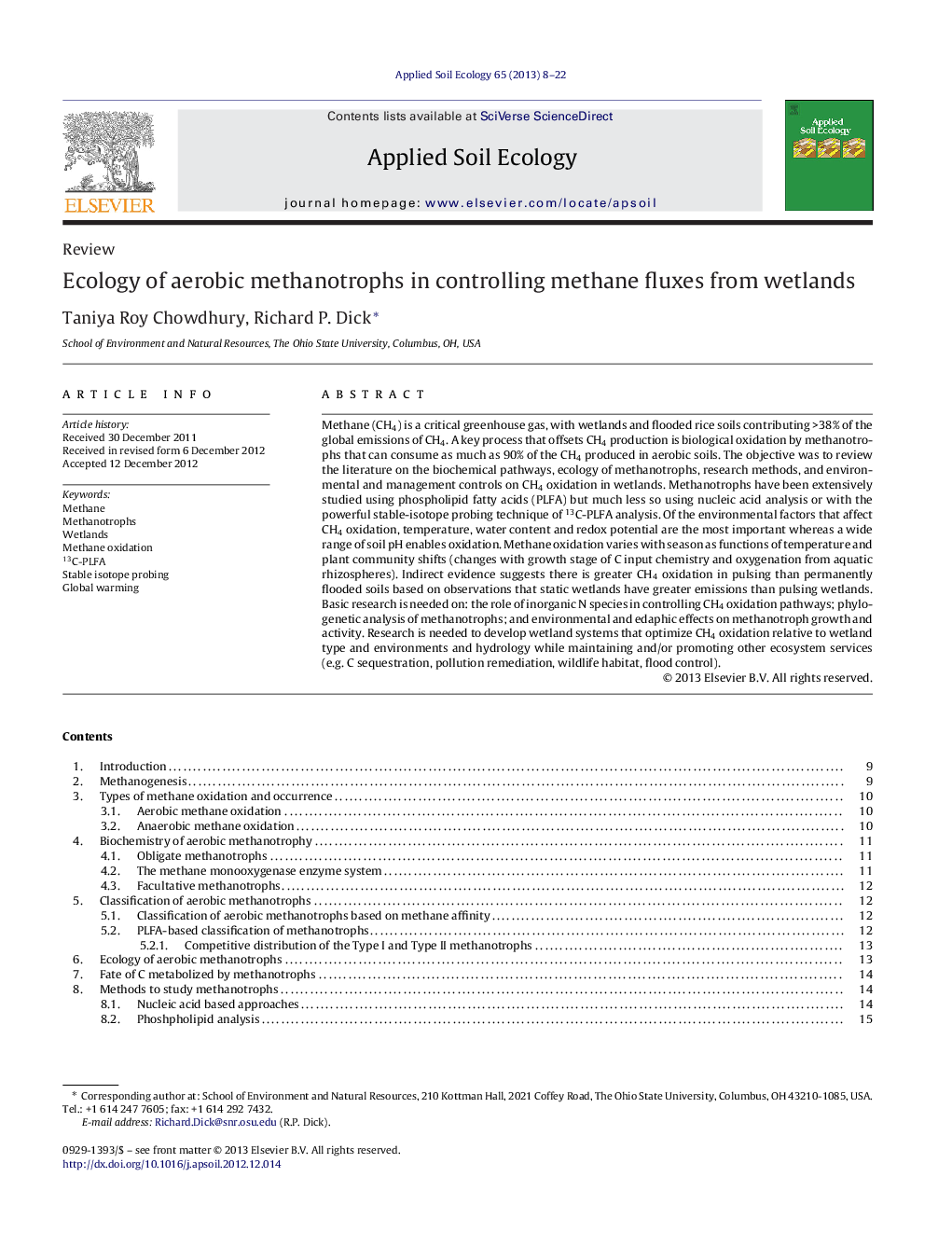| کد مقاله | کد نشریه | سال انتشار | مقاله انگلیسی | نسخه تمام متن |
|---|---|---|---|---|
| 4382436 | 1617818 | 2013 | 15 صفحه PDF | دانلود رایگان |

Methane (CH4) is a critical greenhouse gas, with wetlands and flooded rice soils contributing >38% of the global emissions of CH4. A key process that offsets CH4 production is biological oxidation by methanotrophs that can consume as much as 90% of the CH4 produced in aerobic soils. The objective was to review the literature on the biochemical pathways, ecology of methanotrophs, research methods, and environmental and management controls on CH4 oxidation in wetlands. Methanotrophs have been extensively studied using phospholipid fatty acids (PLFA) but much less so using nucleic acid analysis or with the powerful stable-isotope probing technique of 13C-PLFA analysis. Of the environmental factors that affect CH4 oxidation, temperature, water content and redox potential are the most important whereas a wide range of soil pH enables oxidation. Methane oxidation varies with season as functions of temperature and plant community shifts (changes with growth stage of C input chemistry and oxygenation from aquatic rhizospheres). Indirect evidence suggests there is greater CH4 oxidation in pulsing than permanently flooded soils based on observations that static wetlands have greater emissions than pulsing wetlands. Basic research is needed on: the role of inorganic N species in controlling CH4 oxidation pathways; phylogenetic analysis of methanotrophs; and environmental and edaphic effects on methanotroph growth and activity. Research is needed to develop wetland systems that optimize CH4 oxidation relative to wetland type and environments and hydrology while maintaining and/or promoting other ecosystem services (e.g. C sequestration, pollution remediation, wildlife habitat, flood control).
► Methane oxidation by methanotrophs offsets methane emissions in wetlands.
► PLFA over PCR or 13C-PLFA analysis have been widely used to study methanotrophs.
► Temperature, water content and redox potential affect CH4 oxidation.
► Seasonal shifts in plant community and physiology affect rates of methane oxidation.
► Methane oxidation is greater in pulsing than permanently flooded soils.
Journal: Applied Soil Ecology - Volume 65, March 2013, Pages 8–22